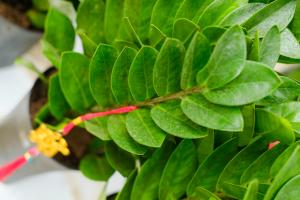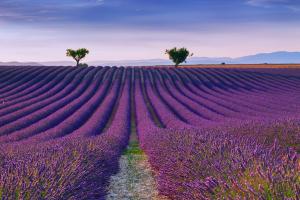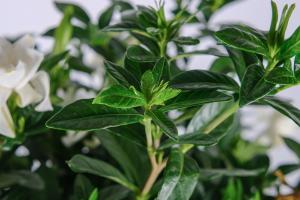Introduction
Freshwater plants are an essential and often underestimated component of aquatic ecosystems. They play a vital role in maintaining water quality, providing habitat for aquatic creatures, and regulating the temperature of bodies of water. This article will explore what freshwater plants are and their importance in the environment.
What are Freshwater Plants?
Freshwater plants are plants that grow in bodies of water that contain less than 1% salinity. They come in a variety of shapes and sizes, from tiny, single-celled algae to larger ferns and flowering plants. Freshwater plants can grow in a range of habitats, including rivers, lakes, ponds, and wetlands.
The Importance of Freshwater Plants
Freshwater plants are essential to the health of aquatic ecosystems. They play a significant role in nutrient cycling, water purification, and providing habitats for organisms. Aquatic plants, such as phytoplankton and algae, use photosynthesis to produce oxygen, which is crucial for the survival of many aquatic organisms, including fish and invertebrates. Additionally, freshwater plants provide valuable food and shelter for aquatic animals.
Types of Freshwater Plants
As mentioned earlier, freshwater plants come in various shapes and sizes. Some common types of freshwater plants include:
Phytoplankton
Algae
Duckweed
Water hyacinth
Cattails
Water lilies
Ferns
Each of these plants plays a different role in aquatic ecosystems, from providing food and shelter for wildlife to helping regulate water temperature and removing excess nutrients from the water.
Challenges Facing Freshwater Plants
Despite their importance, freshwater plants face many challenges, including habitat destruction, pollution, and climate change. Human activities, such as dam construction and urbanization, can destroy freshwater plant habitats and disrupt ecosystems. Pollution, such as runoff from agricultural activities and sewage discharge, can also harm freshwater plants and other aquatic creatures. Climate change poses another significant threat, as rising temperatures and changing rainfall patterns can alter the distribution and abundance of freshwater plants and other organisms.
Conclusion
Freshwater plants play a critical role in maintaining the health and functioning of aquatic ecosystems. They provide valuable habitat, food, and oxygen for aquatic organisms and help regulate water quality and temperature. While freshwater plants face a number of challenges, including habitat destruction, pollution, and climate change, their importance cannot be overstated. It is essential that we protect and conserve freshwater plants and the ecosystems they inhabit to maintain their crucial ecosystem services.

 how many times do yo...
how many times do yo... how many planted tre...
how many planted tre... how many pine trees ...
how many pine trees ... how many pecan trees...
how many pecan trees... how many plants comp...
how many plants comp... how many plants can ...
how many plants can ... how many plants and ...
how many plants and ... how many pepper plan...
how many pepper plan...

































